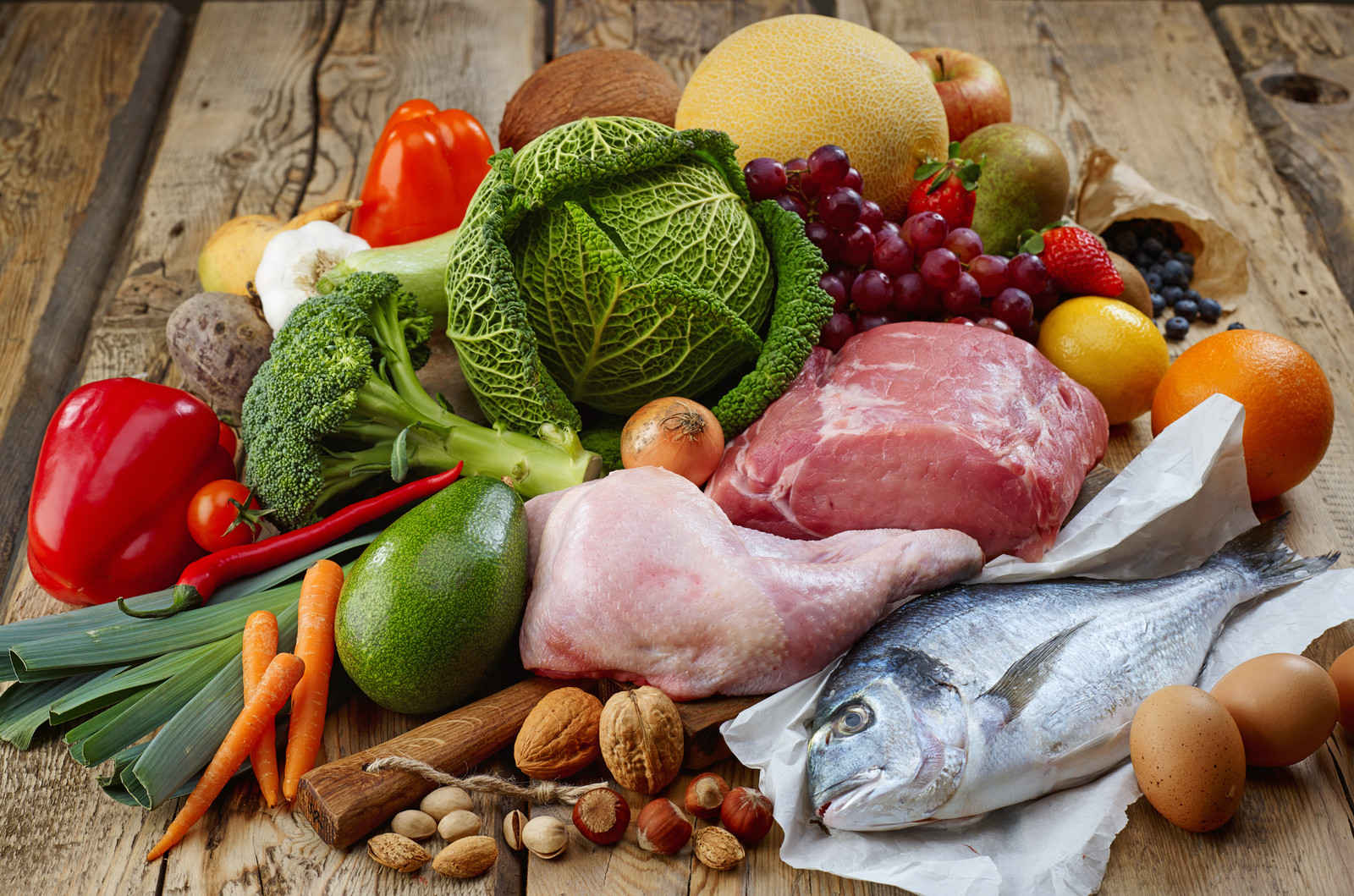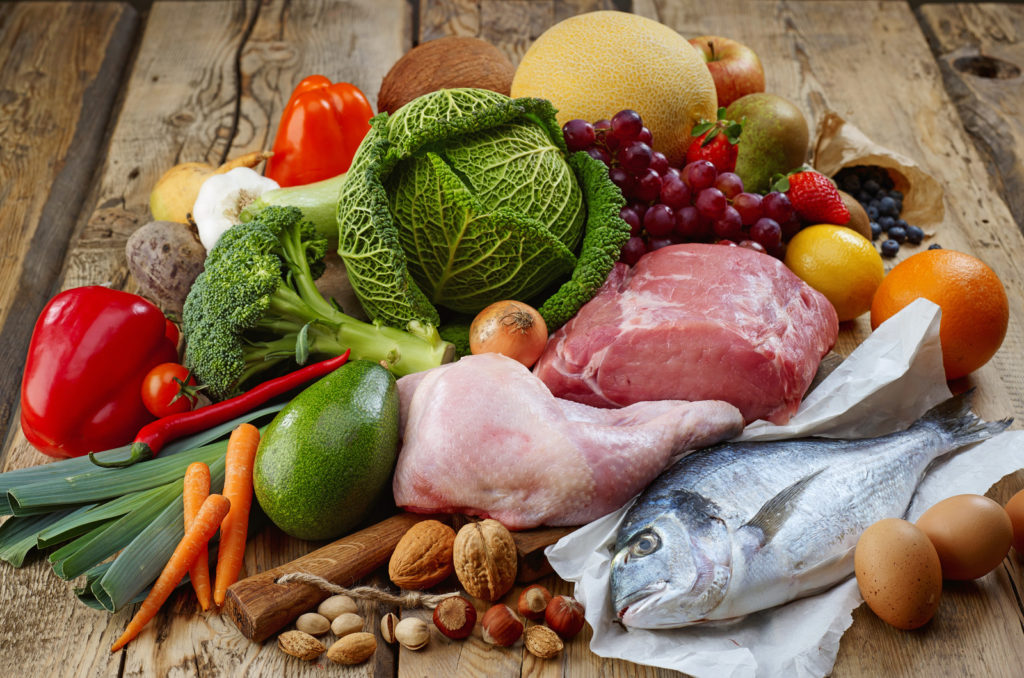 There has been so much media attention in recent months about the Paleo Diet, and a lot of that hype has been brought about by Celebrity Chef Pete Evans (no relative …that I’m aware of!). Pete has often been criticised in the media for being such a staunch advocate of the Paleo Diet and has been taken to task by the Heart Foundation and the Dietitians Association of Australia for his extreme approach.
There has been so much media attention in recent months about the Paleo Diet, and a lot of that hype has been brought about by Celebrity Chef Pete Evans (no relative …that I’m aware of!). Pete has often been criticised in the media for being such a staunch advocate of the Paleo Diet and has been taken to task by the Heart Foundation and the Dietitians Association of Australia for his extreme approach.
So what does the Paleo Diet really involve?
The idea behind it is pretty simple. Because our bodies weren’t designed to handle more recent changes in our diet it makes sense to go back a million years or so and eat like our Paleolithic ancestors.
The recent changes being things like refined sugars, starchy carbs, grains, legumes, dairy products, processed food…and junk food.
The logic behind it: Our ancestors didn’t get diseases such as diabetes and heart disease and if you eat like them today, neither will you. But is the premise flawed?
Bestselling author and food expert Michael Pollan in an interview with said…
“The fact is we’ve changed since then (the Paleolithic era). We have evolved. We didn’t, for example, produce enzymes to digest grain back then. We didn’t produce enzymes to digest lactose – the sugar in milk. So we have evolved. We are not the same body that was eating in the cave.”
Plus many experts say the science is still out on what portion of their diet was animal-based and what portion was plant-based.
With that in mind, let’s take a look at the Paleo diet to see if it makes sense.
What can you eat on the Paleo Diet?
Animal based proteins such as meat (preferably grass-fed,) eggs and fish. Fruits and Non-starchy Vegetables (lettuce, asparagus, green beans, broccoli, cabbage, Brussel sprouts, cauliflower, spinach.) Nuts (almonds, walnuts, cashews, pecans, pistachios) and seeds (such as pumpkin and sunflower seeds) Plant-based oils (olive oil, walnut oil, grapeseed, coconut); herbs and spices.
What do you avoid eating on the Paleo Diet?
Dairy (no milk, yogurt, ice cream or cheese.) Grains. Legumes or beans (no peanuts or peanut butter, no black or baked beans or anything with soy in it.)
Starches. Alcohol. Processed foods. No sugars or sugar substitutes. No high fat processed meats.
Pros to the Paleo Diet
- You will be eating a diet without preservatives, chemicals or additives.
- You will potentially lose weight, for the most part, due to your avoidance of processed foods, fast foods and sugar.
- It eliminates white refined carbohydrates from your diet which tend to increase your blood sugar level and have little nutritional value.
- It encourages you to eat plenty of vegetables and reduce your sugar intake.
- You will eat less salt. High levels of salt contribute to high blood pressure and risk of heart disease and stroke.
- It expunges processed foods from your diet.
- It encourages the consumption of meat that has been humanely raised and pasture fed.
- There’s no calorie counting.
Cons of the Paleo Diet
- No grains. Grains are an important source of fibre and nutrients have been associated with significantly lower risk of heart disease and diabetes.
- No legumes. Among other benefits, research has shown that legumes help lower your risk of heart disease and stabilise blood sugar for people with diabetes.
- A large reliance on meat. Meat has been linked to the increased risk of disease.
- Very restrictive. Which means it might be hard for most to stick to it long term.
- It can be pricey and time-consuming.
Conclusion
My personal view – I don’t follow the Paleo diet. I find the health benefits of including legumes, dairy and grains in my diet far outweigh the risk, and sustainability, of leaving them out. I think some of the ideas are good, but it is too restrictive for most people, so in my mind, not a great solution! Taking all this into consideration, it’s not a big surprise that in its 2014 rankings of “Best Diets Overall,” U.S. News, listed the Paleo Diet (tied with The Dukan Diet) in last (#31) place.
But I still say “good on you” Pete! He’s raised the profile of healthy eating and if it gets people taking action to cook healthy meals, eat more vegetables and eat less processed food and sugar, then it’s been a success!

